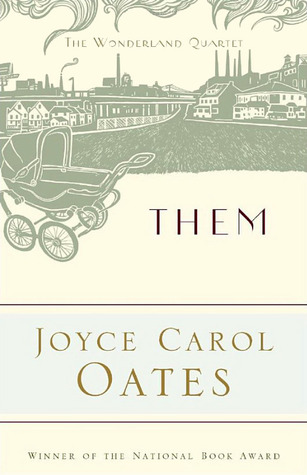My novelist friend Rachel Kranz sent me a must-read Buzzfeed article about the impact that Joyce Carol Oates’ Wonderland Quartet had on a woman who grew up in foster care. Since I wrote on Tuesday about how Alice in Wonderland changed Oates’ own life, it seems appropriate to write about how the author did the same for someone else.
Marsha Chadburn begins her article by talking about her reading experiences in a group home:
When it came time for lights out in the group home, I’d keep reading, blanket over my head, flashlight in my hand. Books can take you somewhere else, can be a balm and comfort both. The flip side is that they can hurt you just as deeply. Reading under that blanket, I was assaulted again and again by bootstrap narratives of self-resilience. You know the ones: With enough determination and enough perseverance you too can accomplish anything. Oh, could I? All these novels were just an incredibly fancy way of saying, “Try harder.” It was as if someone had a pen to write with and instead used it to stab me in the heart — me, or any of the kids in the home.
I like how Chadburn mentions the damage that fiction can do (she particularly has Ayn Rand in mind). As Wayne Booth observes in The Company We Keep: The Ethics of Fiction, we can’t legitimately say that fiction can do great good unless we are willing to acknowledge its capacity to do great harm. Chadburn found great good in the Wonderland Quartet:
It wasn’t until years later, when I was in my twenties, that I found the counternarrative, the response I had been seeking for so long. In a set of four books collectively called the Wonderland Quartet, Joyce Carol Oates redefined for me what books could teach me about the world I’d grown up in. In the small world where I grew up, there was only fast food and public transportation and cockroaches and rabbit ears extended with hangers on top of the television and having to stand in the right place for reception. What I knew were stories of a cycle that held people down. The Wonderland Quartet gave words to things I already knew: The problem faced by poor people is poverty. Or rather, the opposite of poverty is not wealth; the opposite of poverty is justice. The sort of terror that dwells deep in the meat of my psyche — everything I need to tell you about me, about people, about power — is brought to life by the men and women of these books.
Chadburn finds passages in each of the novels that articulate her childhood reality. Her favorite is them, the third book in the quartet:
Of the four books in the Wonderland Quartet, I related to the central character Loretta of them most. If you have time for only one of these novels, or if you have time for only one more novel in your life, read them. Love-struck, 16-year-old Loretta, hours after losing her virginity, loses her first lover to a bullet fired by her brother. Within a few desperate hours, she gains a husband. Loretta then moves to roaring Detroit, where she grapples with desperation and hunger. This was my plight, thinking a powerful person would be my solution, when powerful people only exacerbated my powerlessness.
Reflecting on what drew her to Oates, Chadburn says that the author helped her both to make sense of a confusing world and to escape the destructive cycles that poverty sets in motion:
I am drawn in by all our naughty raw bits. I want to know your insides, your intentions, but only to put my fingers to the keyboard over and over again to attempt to make sense of things, attempt to not repeat things.
Ultimately, the Wonderland Quartet taught her that poor people, including herself, are not inherently vicious but can be rendered so by inequality, systemic exploitation, and the fear of being poor and powerless:
In the afterward to them, Oates quotes the poetic epigram from John Webster’s tragedy The White Devil, which asks the vital question, “…because we are poor/Shall we be vicious?” This is the question to which the Wonderland Quartet provides an extended answer. The short answer is no, that in fact most of the central characters begin poor and powerless and as the narrative progresses they gain some wealth or power, sometimes it is artificial or fleeting, and therefore is rooted in fear and insecurity. It is the greed and the desire to hold on to any gains that make them vicious, even more so the systemic exploitation, the inequities overall. Like my loving terrier guarding her food against a lion or a banker. It is not the terrier that is vicious, nor has the food made her vicious — but the disparity of the thing.
Yet one more inspiring example of how novels throw us vital lifelines.
